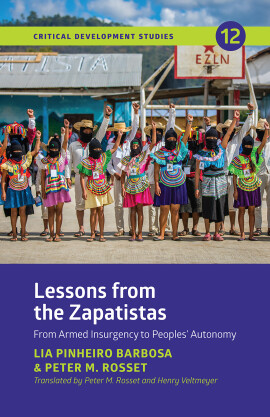
The INGO Problem
Power, privilege, and renewal
International non-governmental organisations (INGOs) have emerged over the past few decades as the dominant institution in the civil society ecosystem, garnering a disproportionate amount of both resources and power in the international arena. Local actors continue to be marginalised and largely excluded from decision-making. Many often act as little more than sub-contractors to the INGO sector or face direct competition as INGOs have sought to set up their own ‘local’ organisations.
But this dominant position is under threat. INGOs are now on the precipice of decline, having to face up to a series of challenges in recent years: from sexual exploitation scandals, to accusations of white-saviourism, resulting in ever-louder demands to ‘decolonize’ and shift power and resources more directly to local actors. In some cases, funders are now heeding these demands, turning away from INGOs altogether.
‘The INGO Problem’ explores these challenges, drawing from the personal experience of the author, and delves into the stories of leaders across all sectors of global civil society. It builds on the work of the RINGO Project, a systems-change endeavour to “Reimagine the INGO” and its relationships with local civil society organisations. The project explores difficult issues around race and power, and offers ideas for new systems of accountability, risk, funding, governance and more.
Published: 2024
Pages: 186
eBook: 9781788534420
Paperback: 9781788534406
Hardback: 9781788534413
But this dominant position is under threat. INGOs are now on the precipice of decline, having to face up to a series of challenges in recent years: from sexual exploitation scandals, to accusations of white-saviourism, resulting in ever-louder demands to ‘decolonize’ and shift power and resources more directly to local actors. In some cases, funders are now heeding these demands, turning away from INGOs altogether.
‘The INGO Problem’ explores these challenges, drawing from the personal experience of the author, and delves into the stories of leaders across all sectors of global civil society. It builds on the work of the RINGO Project, a systems-change endeavour to “Reimagine the INGO” and its relationships with local civil society organisations. The project explores difficult issues around race and power, and offers ideas for new systems of accountability, risk, funding, governance and more.
| 1.Times they are a-changing | |||
|---|---|---|---|
| 2. The purpose and role of INGOs | |||
| 3. From the inside looking out: governance, structure and skills | |||
| 4. Managing Risk and Accountability | |||
| 5. Show me the money | |||
| 6. Knowledge is Power | |||
| 7. Breaking it down, sector by sector | |||
| 8. Renewal |
'The INGO Problem is a must-read for international development leaders who have ever wondered how a system that can seem rigid and outdated can better serve civil society. Deborah draws upon her decades of experience to share a critical look at the global INGO landscape and offers an ambitious vision to overcome many of the structural inequities hardwired into the system.'
Darren Walker, OBE, President of the Ford Foundation
'This book is a powerful, timely and brutal critique of how the INGOs show-up in the world. Deborah Doane in this book asks deeply critical but crucial questions of INGOs. I would recommend this book to every person who works with INGOs or inhabits that space, particularly the Boards and leadership of the INGO organisations and spaces. If INGOs want to travel the path of radical transformation for reimagining their future, they would need to earnestly engage with these tough conversations raised in the book.'
Amitabh Behar Acting ED of Oxfam International and former ED of Oxfam India
'This book is a timely reminder that we have waited long enough for the transformative changes we need in how international aid and development are designed and coordinated. Deborah Doane makes a strong call to address barriers that prevent global agencies, governments and donors from delivering on commitments that recognize, enable and resource diverse local civil society groups as key development actors in their own right.'
Lysa John, Secretary-General of CIVICUS
Deborah Doane
Deborah Doane is Partner and Rights CoLab & Co-convenor at the RINGO Project. She has worked in Civil Society since 1997, across humanitarian, development, economic justice, human rights and environmental organisations, and philanthropy.
Into the discomfort zone of decolonising aid: how humanitarian actors can effect change
Mosebo, Marianne
Journal of International Humanitarian Action, Vol. 10 (2025), Iss. 1
https://doi.org/10.1186/s41018-025-00170-3 [Citations: 1]From intermediaries to transformative partnerships: reimagining intermediaries as ecosystem builders, advocates, amplifiers, co-conspirators, and learners
Dela Cruz, Loreine B.
Kapoor, Seema
Mercado, Michael Vincent
Smith, Rachel
Development in Practice, Vol. 35 (2025), Iss. 8 P.1318
https://doi.org/10.1080/09614524.2025.2540585 [Citations: 0]A New Brussels Consensus? Qatargate and the (Re)articulation of EU International Development Cooperation Governance
Murphy, Susan P.
McMahon, Cian
(2025) P.1
https://doi.org/10.1080/14650045.2025.2585304 [Citations: 0]




